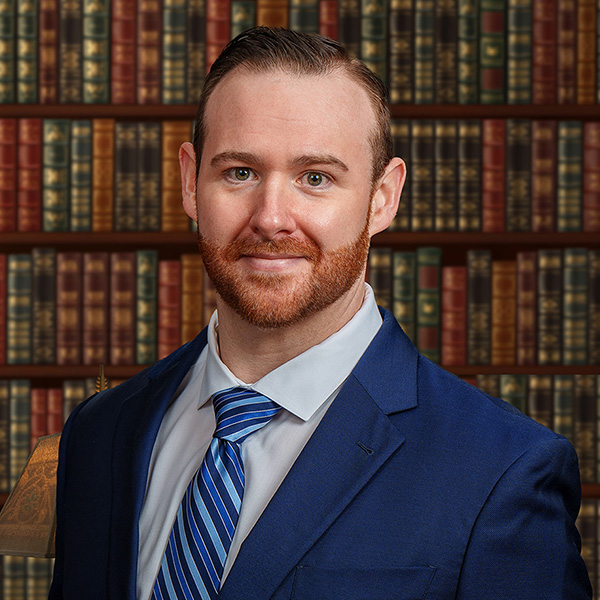When dealing with the aftermath of a premises liability situation, feelings of confusion and worry are entirely natural. If you are grappling with such a case, it is important to know you are not alone. Legal questions surrounding premises liability can be complex, especially when they involve trespassing. The good news is that help is available, and you do not have to navigate this challenging time on your own. At, McDonald At Law , we are here to guide you through the legal process and help you navigate the complexities of your case.
Understanding Premises Liability in Pennsylvania
Premises liability cases arise when someone suffers an injury due to dangerous conditions on another person’s property. Pennsylvania property owners have a duty to maintain safe environments for those who lawfully enter their premises. However, the extent of their responsibility can vary depending on the visitor’s status, such as whether they are an invitee, licensee, or trespasser.
Invitees are individuals who enter a property for a business purpose or with the owner’s permission, such as customers in a store. Licensees are social guests or others who enter with permission but not for a business reason. Trespassers, on the other hand, enter a property without permission, which significantly alters the responsibilities of the property owner. These distinctions are crucial in determining liability in premises liability cases, particularly when trespassing is involved.
How Trespassing Affects Premises Liability Claims
When someone trespasses, they typically forfeit many of the protections offered under premises liability laws. Pennsylvania law does not require property owners to ensure the safety of trespassers. This means that if a trespasser is injured, the property owner may not be held responsible unless the injury was caused intentionally or through gross negligence.
There are exceptions to this general rule, especially when children are involved. Under what is known as the attractive nuisance doctrine, property owners could be held liable if an unsafe condition on their property entices a child to trespass and results in injury. Examples might include unfenced swimming pools, abandoned equipment, or other hazards that are likely to attract children. This legal doctrine recognizes that children may not fully understand the dangers of trespassing or hazardous conditions.
“Highly Recommended” is the epitome of an understatement when it comes to the firm of McDonald At Law!! Michael McDonald’s genuine pleasant, and empathetic demeanor masks his legal astuteness, and the level of aggressiveness he implements in pursuit of a victim’s right and the monetary compensation legally entitled to us. I was involved in a motor vehicle accident at the hands of an intoxicated driver in York County. In my case I suffered what I described as an atypical injury, Mr. McDonald offered to be my Lawyer immediately after explaining to him the events leading to and after being struck in turn causing me to have a heart attack, when another law firm seemed hesitant. McDonald At Law secured a sizable monetary compensation that not only met my expectation but exceeded it. Mr. McDonald’s wealth of experience, and legal prowess is priceless and never did he act as the case was beneath his practice. In the end my family and I were well compensated, but also felt justified. Thank you McDonald At Law!!- Miguel Lopez
Examples of Trespassing and Liability
Trespassing can take many forms, from individuals wandering onto private land to teenagers entering abandoned buildings out of curiosity. In most cases, a property owner is not liable for injuries to trespassers unless the owner’s actions were reckless or willful. For instance, setting a trap to harm trespassers would be considered intentional misconduct, leading to potential liability.
On the other hand, situations involving children can complicate matters. Suppose a child is injured while climbing onto a poorly secured structure on private property. Even if the child was trespassing, the property owner might be held accountable if they failed to take reasonable precautions to prevent access to the hazard.
Putting off an Attorney due to Cost Choosing a Personal Injury AttorneyRelated Videos
Defending Against Trespassing Claims
From a legal perspective, property owners may argue that they took reasonable steps to prevent access to their property and were unaware of the trespasser’s presence. Evidence such as posted warning signs, fences, and other security measures can demonstrate that the owner acted responsibly. The specific circumstances of the trespassing incident will play a significant role in determining whether the property owner bears any liability.
What to Do if You Are Involved in a Premises Liability Case
Whether you were injured on someone else’s property or you are a property owner facing a claim, understanding your rights and responsibilities is essential. Collecting evidence, such as photographs of the property, medical records, and witness statements, can be vital in building a strong case. Working with a knowledgeable attorney can make a significant difference in understanding your legal options and achieving the best possible outcome.
The Importance of Legal Representation
Premises liability cases can quickly become complicated, particularly when trespassing is a factor. While property owners often have strong defenses against claims from trespassers, exceptions and nuances in the law mean that every case requires careful analysis. An attorney can help injured individuals determine if their situation qualifies for compensation and can assist property owners in crafting a strong defense.
The Role of Property Maintenance in Premises Liability
One key factor in premises liability cases, even when trespassing is involved, is property maintenance. Property owners must take reasonable measures to ensure their land or buildings do not pose unnecessary risks to others, even in cases where liability might not be immediately apparent. Failing to maintain fences, leaving hazardous materials exposed, or ignoring known dangers can sometimes lead to liability, especially if a court finds the owner acted negligently or recklessly. For this reason, property owners are encouraged to regularly inspect their property and address any issues that could create risks, even for unauthorized visitors.
How Trespassing Impacts Compensation
For injured parties who were trespassing, the path to compensation can be challenging but not impossible. Courts will often weigh the trespasser’s actions, the property owner’s behavior, and the specific circumstances of the incident. While most cases involving trespassers do not result in compensation, exceptions such as intentional harm or gross negligence may lead to a successful claim. It is crucial to consult with an attorney to determine whether your case has merit and what evidence may be required to support it.
Navigating Emotional Challenges During a Case
Legal disputes involving injuries and property can be emotionally taxing. If you or a loved one were injured as a trespasser, feelings of guilt or confusion about legal options are natural. Similarly, property owners may feel overwhelmed by the idea of defending against a claim, even if they acted responsibly. These emotions can complicate decision-making, which is why having legal support is so critical. An attorney can help you separate the legal facts from the emotional weight of the situation, ensuring that your rights are fully protected.
Legal cases involving premises liability and trespassing often involve intricate details that can affect the outcome. Attempting to handle these matters alone can lead to missed opportunities or challenges in presenting evidence effectively. By working with a legal professional, you can gain clarity, ensure your rights are protected, and pursue the resolution you deserve.
At McDonald At Law, we understand the stress and uncertainty that comes with a premises liability case. Our team is here to provide compassionate, personalized guidance and fight for a successful outcome on your behalf. If you are ready to move forward and explore your legal options, we invite you to contact us today to schedule a consultation. Let us help you take the next steps with confidence.



